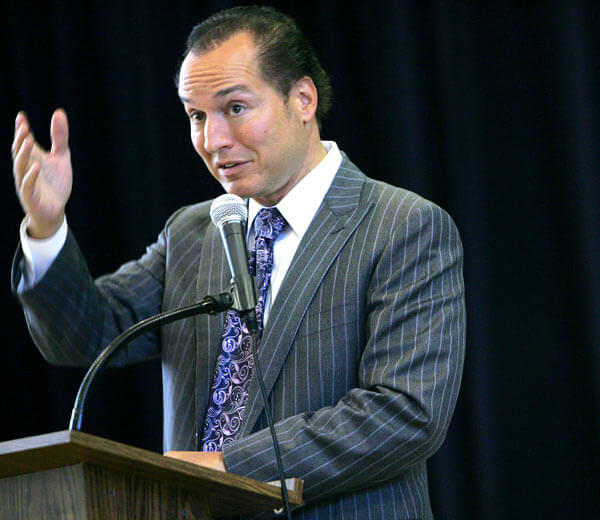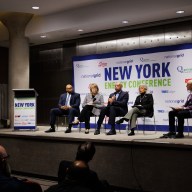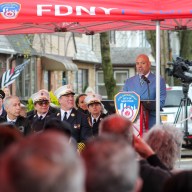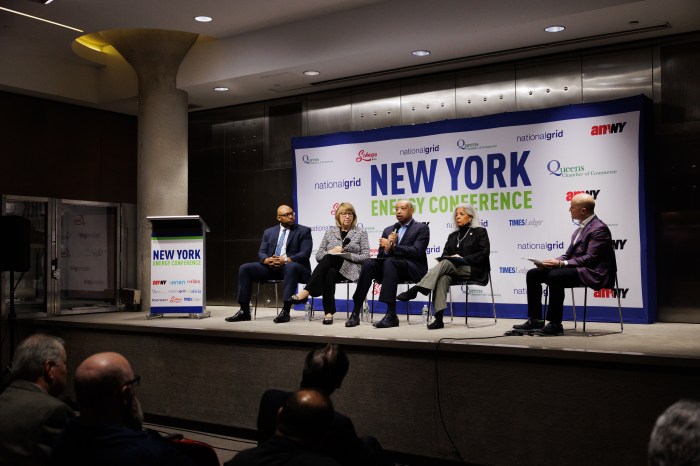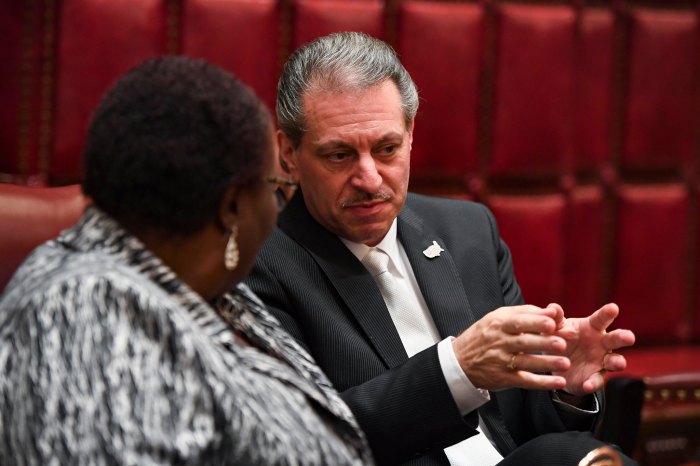By Rebecca Henely
City Councilman Peter Vallone Jr. (D-Astoria) said he would introduce a resolution calling upon the state Legislature to increase penalties for sex trafficking after he and Councilwoman Julissa Ferreras (D-East Elmhurst) held a hearing on the subject last week.
“I want to do all we can as Council members to get more attention on this horrific situation,” Vallone said. “It’s unfortunate, but 14-year-old girls are being beaten and forced into prostitution and for the most part the world is yawning.”
Vallone, who chairs the Council Public Safety Committee, and Ferreras, who chairs the Council Women’s Issues Committee, held the joint oversight hearing Oct. 19 to examine the NYPD’s and the Queens and Brooklyn district attorneys offices’ strategies for combatting sex trafficking. The Council had previously held a hearing on social services available to victims.
Ferreras said these hearings were needed since the NYPD had recently created a sex trafficking task force and she wanted to check the department’s progress.
“If you just go down the Roosevelt Avenue corridor, the amount of prostitution and potential sex trafficking is very high,” she said.
Vallone said the Queens and Brooklyn DAs were tapped as they volunteered to participate and are doing a particularly good job in combatting the crime. They recommended sex trafficking be increased from a nonviolent felony to a violent felony. A violent felony carries a minimum 5-year jail sentence to a nonviolent felony’s one- to three-year sentence.
While changing the law can only be done by the state Legislature, Vallone is introducing a resolution calling upon the Legislature to increase the punishment as well as making a person who intentionally advances or profits from prostitution involving a victim 16 years old or younger guilty of sex trafficking.
“It makes no sense that it’s a nonviolent crime, because one of the things you often need to prove is force and coercion,” Vallone said.
Ferraras said she was surprised to learn the NYPD had not made any arrests of members of international sex trafficking rings, of which there is a big underground culture. Much of the trafficking that goes on remains domestic, with pimps taking on runaway teens, some as young as 12.
“It’s still startling and unfortunately should not be happening here in New York or in any part of the United States,” she said.
Vallone said he learned two surprising facts about sex trafficking. The first was that in 2009, the NYPD made nine sex trafficking arrests, but this year they have made 70 sex trafficking arrests. All these arrests were domestic.
The other shocking detail about those arrests were that none of them came from the Asian community, even though the police know sex trafficking is happening in neighborhoods like Flushing and Manhattan’s Chinatown.
Vallone said the police have not been able to get the proper testimony from victims and community support to make arrests.
Ferreras said she hoped the NYPD would build partnerships with local bars and salons and try to find out about where trafficking is occurring in the communities. She said many pimps send girls to salons, and through trust the community can become a resource.
“They may be able to tap in and get more information from the neighborhood,” she said.
Reach reporter Rebecca Henely by e-mail at rhenely@cnglocal.com or by phone at 718-260-4564.

